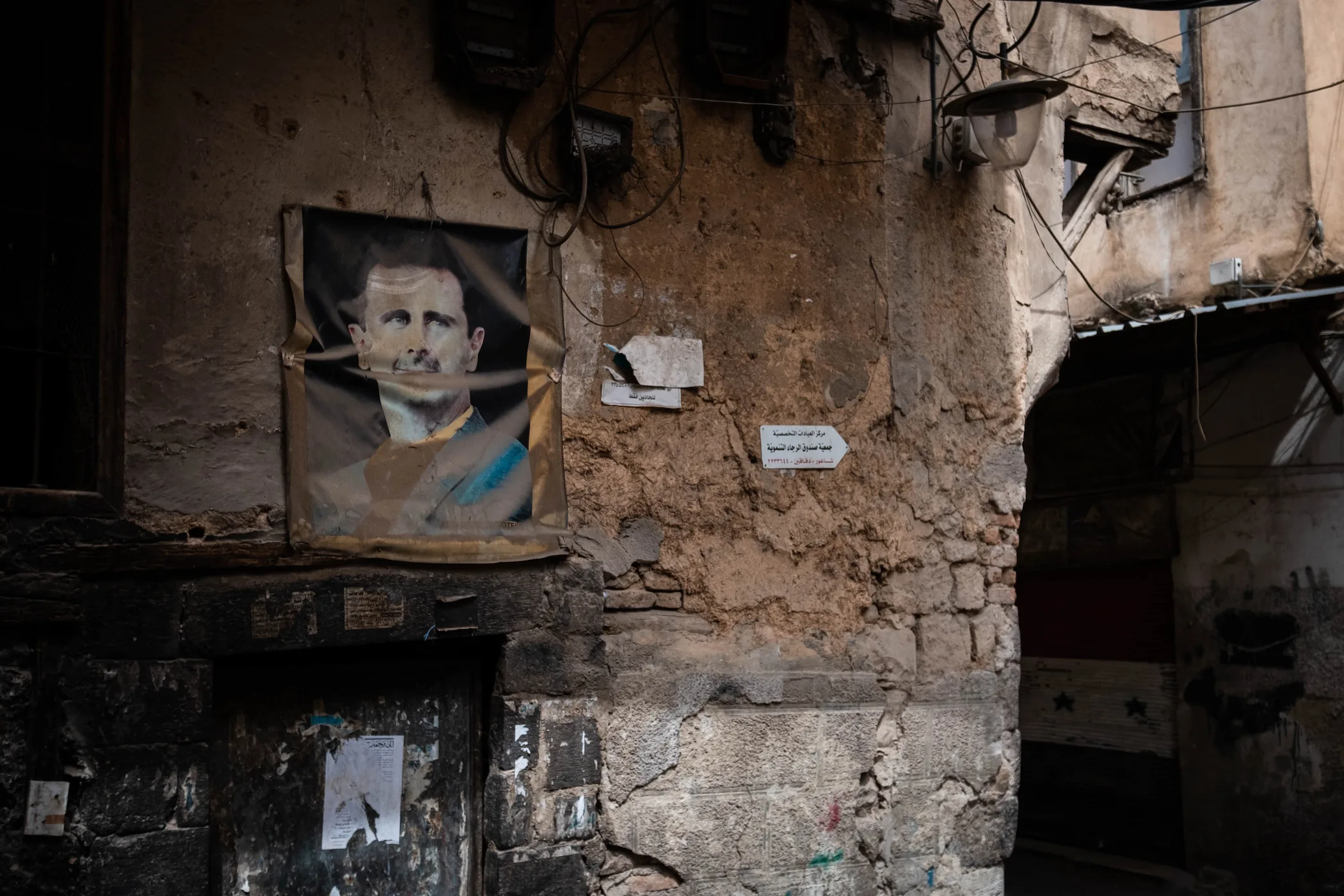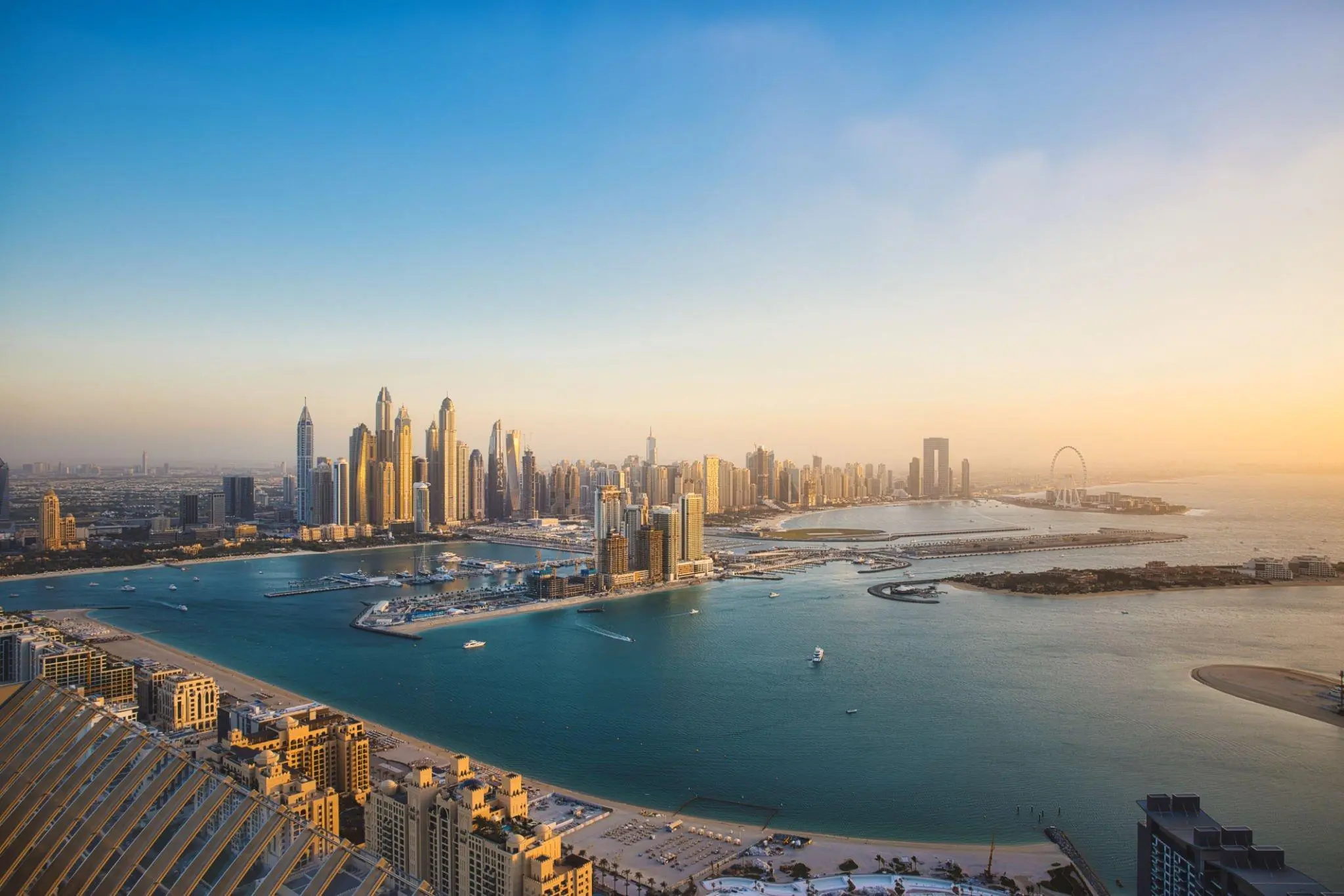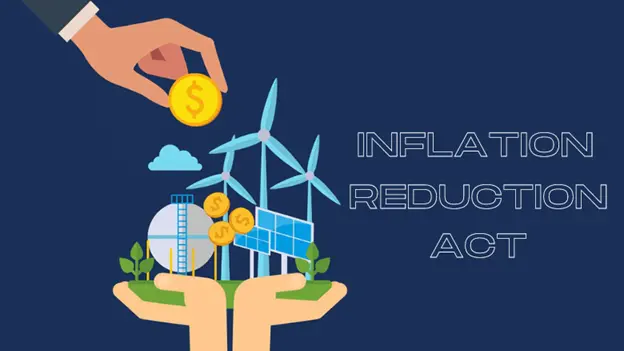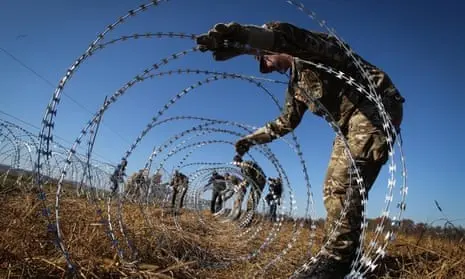The stakes are high for the EU elections which are set to take place on June 6. Since the last elections in 2019, the bloc has faced a significant number of complex challenges with the COVID-19 Pandemic and ongoing Russia-Ukraine War shocking the bloc’s economy and energy security, bringing to surface critical questions about common foreign and defence policy and triggering a crisis of misinformation, potential foreign extortion, and anti-EU sentiment to name a few. While the 2024 elections are expected by many to be a difficult test for European solidarity and resilience, they also have implications that reach beyond the bloc.
Defence and Foreign Policy
Defence is a top priority for the next European Parliament and Commission, especially given the significant costs ($295 billion in 2023 alone) associated with responding to the ongoing conflict in Ukraine since 2022. Among the key policies to watch are initiatives aimed at enhancing defence capabilities, promoting strategic autonomy, and fostering greater cooperation in defence procurement and research. While EU defence bonds, pushed for by French president Emmanuel Macron, seem unlikely to many, the groundwork has been laid for a program to massively boost the EU’s defence industry in the coming years. Ursula Von der Leyen’s New Defence Industrial Strategy, the first of its kind, could be a game-changer for the Russia-Ukraine War – if members agree on it.
While some parties advocate for increased defence spending and the development of a European army, others prioritize cooperation within existing frameworks, such as NATO. Former President Donald Trump’s comments about a potential American withdrawal from NATO poses a substantial risk which EU leaders are likely accounting for in their decisions. This raises the stakes for the EU’s defence budget discussions, which are already highly tense and politically charged. While there is broad agreement across the political spectrum that Ukraine’s defence is pivotal in curbing the expansionist ambitions of authoritarian regimes, affirmed by Parliaments recent resolution to support Ukraine “with whatever is needed to win,” divergent approaches to defence policy could strain relations between certain member states.
The outcome of the EU elections and the subsequent trajectory of EU defence policy have far-reaching implications not only for the Russia-Ukraine War but also international political dynamics. While a more unified and assertive EU defence posture could neutralize Russia, it could also provoke more aggression and prolong the war; further causing volatility in global oil and energy markets. Ongoing EU enlargement procedures (which include the potential accession of Ukraine, Moldova, and Bosnia and Herzegovina) are additional factors increasing the risk of expanding conflict in the coming years. Two of the European Parliament’s largest parties, the European People’s Party (EPP) and the Party of European Socialists (PES) support enlargement.
On the other hand, internal divisions or a lack of consensus on defence may undermine the EU’s credibility as a security actor and weaken its ability to respond effectively to evolving security threats. An incoherent or inefficiently funded defence strategy may indeed leave room for Russia to make political gains. It would also place Europe in a difficult political and financial position vis-à-vis NATO, especially in the case of a Trump presidency.
Migration and Asylum Policy
A more divisive issue on the EU’s agenda is the bloc’s migration and asylum policy, which, until this month, had not been updated for about two decades. The key policy to watch here is the New Pact on Migration and Asylum which has implications that extend beyond European borders, especially in the Mediterranean region and specifically transit countries. While migration has historically served as a convenient political instrument, particularly for the far-right movements in Europe, over the past decade, there has been a noticeable trend of other political factions adopting and leveraging migration as a means to bolster their waning electoral prospects.
It is exactly for this reason that EU nations scrambled to approve extensive reforms to the bloc’s unsuccessful asylum system, including 10 legislative parts of the New Pact which were approved on May 14, 2024 just weeks ahead of the elections. The pact mainly aims to reduce the number of arrivals and is said to violate migrants right to claim asylum as well as the right to a safe process, especially for children. If fully enacted, it would only be enforced starting 2026.
This shift toward a harsher stance on migration marks a significant deviation from the bloc’s core values of human rights and respect for international law as well as move toward further appeasement of the far-right. Additionally, countries such as Italy and the Czech Republic are still pushing for the externalization of migrant handling, which is allegedly backed by 19 other EU nations. Although the EPP — the largest political group in the European Parliament at the moment — stated that the guiding principles of its migration policy are “humanity and order”, President of the European Commission Ursula von der Leyen has previously expressed support for the transfer of asylum seekers to “safe” third countries. This could have far reaching regional consequences including those that provoke tensions between the EU and other countries.
Climate Policy
With defence, energy and security issues taking centre stage, the EU appears to have strayed from its climate agenda. By pledging to contribute $447 million to the loss and damage fund, launched at COP28, the EU set expectations for its role in global climate action. However, since then the bloc is yet to reflect its intention through a clear budgetary plan. In December 2023, civil society organizations and activists, along with Members of the European Parliament, called on European leaders to prioritize climate financing in the new 7-year budget. Later, in January 2024, the EU along with other developed nations, missed the deadline to choose their representatives for the loss and damage fund and were allegedly arguing over the number of seats, pushing for them to reflect the size of donation to the fund.
However, the EU is not only avoiding its international climate commitment but has also been watering down the bloc’s own climate and environmental policies. The European Green Deal, which was approved in 2020, has faced many obstacles as a result of the Russia-Ukraine War and subsequent food and energy crises. The Farm to Fork strategy, one of the Green Deal’s biggest components, took the strongest hit as farmers across Europe protested many of its core proposals, the 50% reduction in pesticide use in particular. Additionally, the EPP, alongside other right parties, is also questioning key elements of the deal, such as the ban on combustion engine cars by 2035.
While the far-right has managed to exploit soaring inflation, fiscal austerity, and the farmer’s protests to push back on climate policies, mainstream EU parties have adapted their strategies by prioritizing food production and farmer’s livelihoods over climate protection. New regulations such as the Carbon Border Adjustment Mechanism and the Net Zero Industry Act should also boost local production of key commodities and new clean tech, if enforced successfully. However, this would also need a significant budget. It could also have a significant impact on foreign producers and importers.
The EU elections are more than a routine political exercise; they are a pivotal moment that will determine the trajectory of the bloc’s future amidst a backdrop of significant global challenges. Defence policy, migration, and climate action, as highlighted in this article, are among the critical issues that will have a profound impact on the world. The EU’s approach to these challenges will influence global stability, economic resilience, and the collective effort to address climate change. The struggle between different political groups is also reshaping European politics in a year where voter turnout is the highest in decades, amplifying the significance of these elections.
References
Besch, Sophia. “Understanding the EU’s New Defense Industrial Strategy.” Carnegie Endowment for International Peace, March 8, 2024. https://carnegieendowment.org/posts/2024/03/understanding-the-eus-new-defense-industrial-strategy?lang=enhttps%3A%2F%2Fapnews.com%2Farticle%2Feu-migration-pact-asylum-borders-elections-44abb9c1fa1f2c7a8385167770bb5379.
Bossong, Raphael, and Nicolai von Ondarza. “The Center Holds, but at What Cost?” Internationale Politik Quarterly, March 22, 2024. https://ip-quarterly.com/en/center-holds-at-what-cost.
Cook, Lorne. “EU Agrees on a New Migration Pact. Mainstream Parties Hope It Will Deprive the Far Right of Votes.” AP News, May 14, 2024. https://apnews.com/article/eu-migration-pact-asylum-borders-elections-44abb9c1fa1f2c7a8385167770bb5379.
Griera, Max. EU elections campaign: Which parties have their act together?, January 18, 2024. https://www.euractiv.com/section/elections/news/eu-elections-campaign-which-parties-have-their-act-together/.
Liboreiro, Jorge. “EU Elections: What Do Parties Want to Do on Migration and Asylum?” Euronews, May 7, 2024. https://www.euronews.com/my-europe/2024/05/07/eu-elections-what-do-parties-want-to-do-on-migration-and-asylum.
Lo, Joe. “Rich Nations Miss Loss and Damage Fund Deadline.” Climate Home News, February 1, 2024. https://www.climatechangenews.com/2024/02/01/rich-nations-miss-loss-and-damage-fund-deadline/.
“Open Letter: European Union Leaders Must Step up Climate Funding in next Budget Plan.” Global Citizen, December 12, 2023. https://www.globalcitizen.org/en/content/open-letter-eu-leaders-global-action-funding/.
O’Carroll, Lisa. “Von Der Leyen’s EU Group Plans Rwanda-Style Asylum Schemes.” The Guardian, March 6, 2024. https://www.theguardian.com/world/2024/mar/06/eu-group-european-peoples-party-von-der-leyen-migration-reforms.
Peretti, Alessia, and Aneta Zachová. “Czech PM Confirms 19 EU Countries Back Externalising Migration Handling.” www.euractiv.com, May 14, 2024. https://www.euractiv.com/section/politics/news/czech-pm-confirms-19-eu-countries-back-externalising-migration-handling/.
Ruig, Piet. “Farm-to-Fork, to Protestors with Pitchforks: The Death of EU’s Sustainable Food Policy.” EU Observer, April 29, 2024. https://euobserver.com/green-economy/arf1589b03.
Sario, Federica Di, and Victor Jack. “Ursula’s Empty Green Davos Promise.” POLITICO, January 16, 2024. https://www.politico.eu/article/eu-ursula-von-der-leyen-empty-green-davos-promise-tech-climate-change/.




















Comments